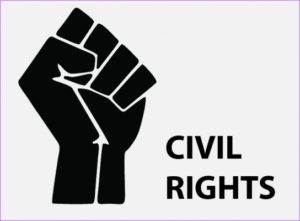Federal Judge In Rhode Island Rules Non-Judicial Fannie Mae Foreclosures Violate US Constitution
 MFI-Miami lawyers and lawyers in non-judicial foreclosure states have been arguing that non-judicial Fannie Mae foreclosures are unconstitutional. Up until this past August, we have had limited success.
MFI-Miami lawyers and lawyers in non-judicial foreclosure states have been arguing that non-judicial Fannie Mae foreclosures are unconstitutional. Up until this past August, we have had limited success.
One of the roadblocks has been the question of Fannie Mae and Freddie Mac’s current status and their future. Is the conservatorship of Fannie Mae and Freddie Mac permanent or indefinite? In other words, are the GSEs private corporations temporarily under government control like when a private bank goes belly up? Or are Fanie Mae and Freddie Mac quasi-government agencies like Amtrak?
This more than a question of semantics especially with trillions of dollars on the table.
6th Circuit COA Contradicts Itself
The 6th Circuit COA Says GSEs Are Private Corporations When It Comes To Non-Judicial Fannie Mae Foreclosures
 In 2012, retired Michigan attorney Jason Jenkinson and I developed an argument that stated that non-judicial Fannie Mae foreclosures are a violation of a person due process.
In 2012, retired Michigan attorney Jason Jenkinson and I developed an argument that stated that non-judicial Fannie Mae foreclosures are a violation of a person due process.
In Bocardo v. Select Portfolio Services and The Federal National Mortgage Association. (Docket # 1:12-cv-177) we argued that denying the Bocardos the right to contest the merits of their foreclosure after their redemption period would violate their due process rights under Article III of the U.S. Constitution.
Judge Jonker agreed by stating:
We honed the argument to say that non-judicial Fannie Mae foreclosures were a violation of a homeowner’s 5th amendment rights. Federal judges in both the Eastern and Western District of Michigan began agreeing with this argument.
Does Money Influence The Federal Courts?
 However, that was all about to change thanks to the deep-pocketed influences Fannie Mae and Freddie Mac bond investors had with Congress and the federal courts.
However, that was all about to change thanks to the deep-pocketed influences Fannie Mae and Freddie Mac bond investors had with Congress and the federal courts.
It was one thing for GSEs had to shell out an additional $250,000-$300,000 per foreclosure to fight the two of us. This didn’t make them happy. I know because they told us. Now, we were on the verge of costing the government billions in Fannie Mae and Freddie Mac profits.
As a result, phone calls were made in Washington and pressure was applied. Appeals were filed by two of Detroit biggest foreclosure mills and high power litigators were called in.
By mid-2014, the 6th Circuit Court of Appeals ended it all. The court ruled that Fannie Mae and Freddie Mac were private corporations with government conservatorship only being temporary.
We lost but it did force how non-judicial Fannie Mae foreclosures were done in Michigan.
6th Circuit COA Says GSEs Are Government Agencies And Are Exempt From Paying Local And State Taxes
 About this same time, Oakland County and Ingham County in Michigan filed two competing lawsuits alleging Fannie Mae and Freddie Mac owed close to a $500 million in unpaid real estate tax money.
About this same time, Oakland County and Ingham County in Michigan filed two competing lawsuits alleging Fannie Mae and Freddie Mac owed close to a $500 million in unpaid real estate tax money.
Attorney William Maxwell and I developed a legal argument that Fannie Mae and Freddie Mac were exploiting their status as a GSE. We began approaching counties. Oakland County agreed with findings. However, they decided to go their own way.
Maxwell and I began working with Ingham County.
However, I soon left the case after it became apparent that two consumer law attorneys that we recruited to help in the case, Detroit Attorneys Brian Parker and Daniel Marsh, couldn’t win a bronze medal at the Special Olympics. Let alone, pull off a case of this magnitude.
Fannie Mae and Freddie Mac claimed their congressionally chartered GSE status exempted them from state and local taxes. The two cases eventually made their way to the 6th Circuit Court of Appeals. The Appellate Court agreed with Fannie Mae and Freddie Mac. The GSEs are government agencies.
Yes, I know. They contradicted themselves. How can you be a private corporation when you are seizing private assets and a government agency when it’s time to pay taxes. Judges from the 3rd Circuit also saw the contradiction from their 6th Circuit colleagues.
Fast Forward: Federal Trial Judge In Rhode Island Says Non-Judicial Fannie Mae Foreclosures Are Unconstitutional. Fannie Mae And Freddie Mac Are Government Actors
 In August, the federal judge in Rhode Island ruled that Fannie Mae and Freddie Mac are indeed state actors. In Sisti v. Federal Housing Finance Agency, the court ruled those entities’ foreclosure practices must meet constitutional due process standards. He even cited the Oakland County case mentioned above.
In August, the federal judge in Rhode Island ruled that Fannie Mae and Freddie Mac are indeed state actors. In Sisti v. Federal Housing Finance Agency, the court ruled those entities’ foreclosure practices must meet constitutional due process standards. He even cited the Oakland County case mentioned above.
The court found Fannie Mae and Freddie Mac to be state actors because they are under the conservatorship of FHFA. In 2008, Congress authorized the newly formed federal agency to take over operation of both the GSEs.
Under the conservatorship, FHFA controls all aspects of the GSEs’ activities. See Leon Cty. Fla v. FHFA.
The FHFA is an agency of the federal government. Therefore, it is subject to all requirements that apply to a federal agency, including compliance with the Administrative Procedure Act. FHFA has also always claimed that its own broad governmental immunity covers the GSEs under its conservatorship as well. Yet, FHFA vigorously asserts that the GSEs are not governmental entities subject to the Fifth Amendment’s Due Process Clause.
The Conservatorship Is Not Temporary
 FHFA and the GSEs have been convincing courts that the GSEs were not government actors when they foreclosed. The court’s ruling in Herron v. Fannie Mae set the standard for many later rulings. Herron applied the three-part test enunciated by the Supreme Court in Lebron v. National Railroad Passenger Corp. aka Amtrak:
FHFA and the GSEs have been convincing courts that the GSEs were not government actors when they foreclosed. The court’s ruling in Herron v. Fannie Mae set the standard for many later rulings. Herron applied the three-part test enunciated by the Supreme Court in Lebron v. National Railroad Passenger Corp. aka Amtrak:
- • Whether the government created the entity by special law;
- • Whether the entity furthers governmental objectives; and
- • Whether the government retains for itself “permanent authority” to appoint a majority of the directors of that entity.
Herron found that Fannie Mae failed to meet these criteria because the government did not retain permanent authority to appoint GSE directors. Instead, that authority was found to be only temporary. In contrast to Lebron that held that the government exercised permanent control over Amtrak.
Many courts have followed Herron, treating the FHFA’s conservatorship of the GSEs as temporary.
In Sisti, the court found the GSEs to be state actors and that FHFA undisputedly is a federal agency exercising complete control over all aspects of the GSEs’ operations. Fannie And Freddie are also barred from earning profits for shareholders. The court found the government’s authority to appoint GSE directors was not temporary but permanent.
Sisti only decides that the GSEs are state actors. Thus constitutional due process standards apply to their foreclosures. Sisti has not yet reached issues as to whether GSE foreclosures under the state’s nonjudicial foreclosure system meet those due process requirements, although it is likely they will not.




Write A Comment